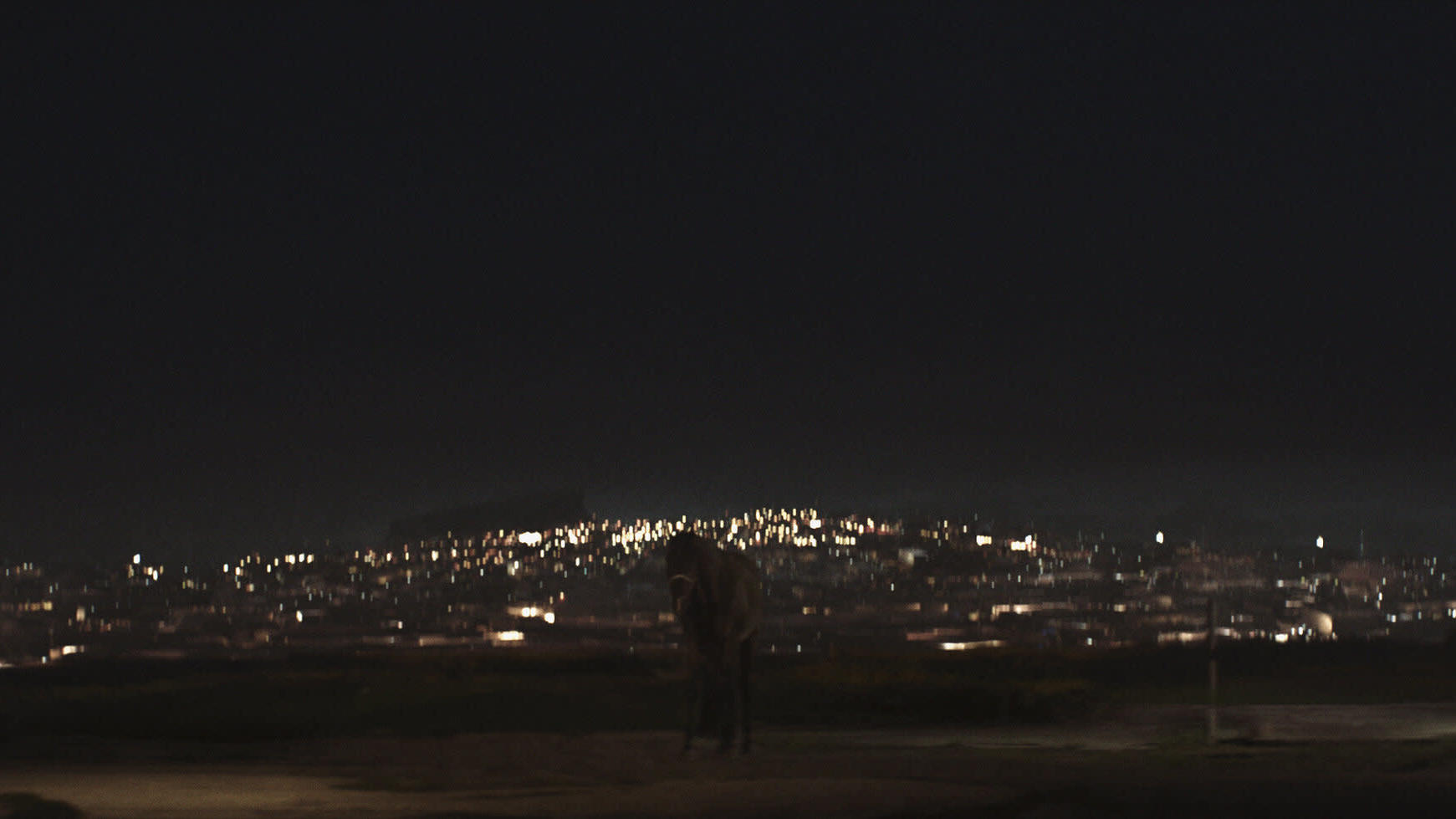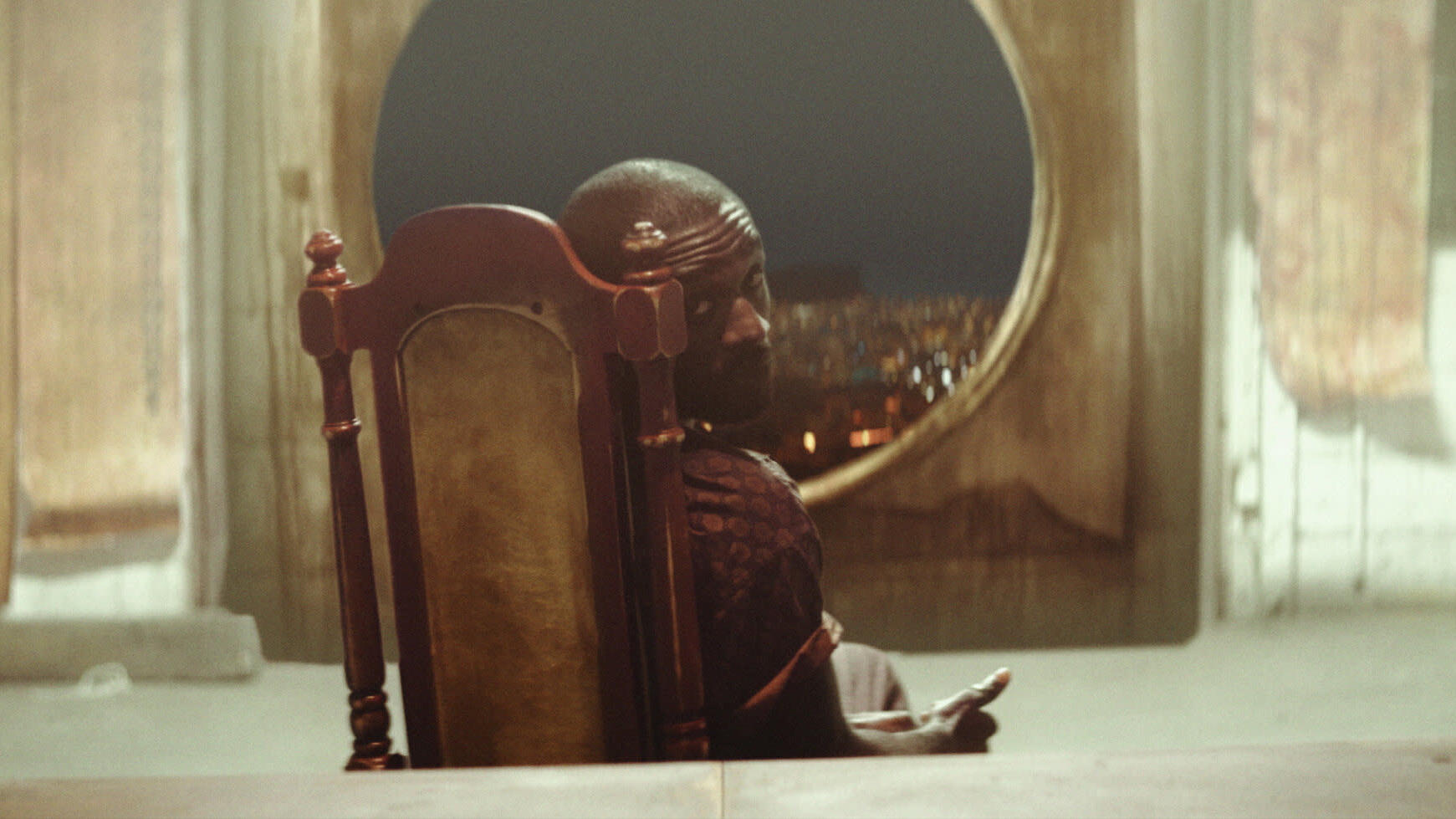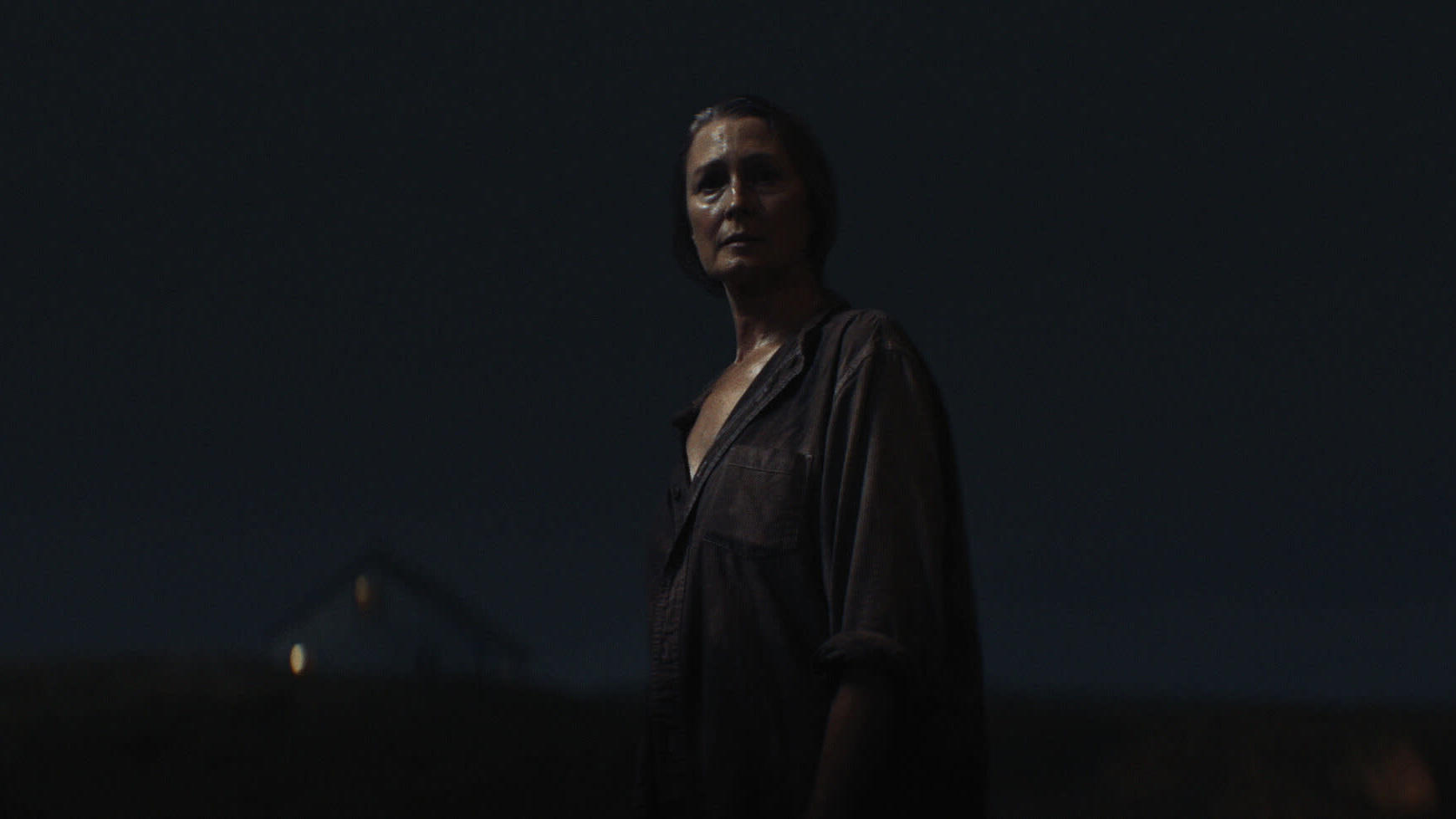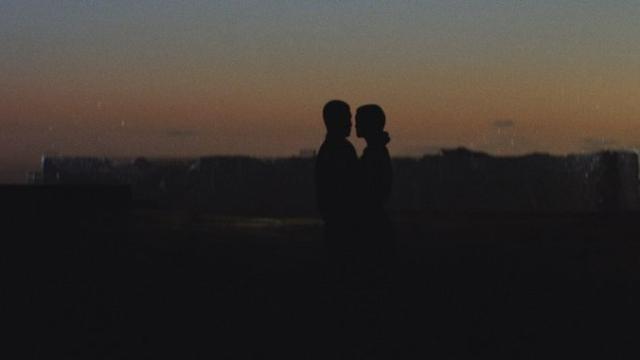Everything I’d read about The Wanting Mare had me excited. Writer-director Nicholas Ashe Bateman spent five years making the film in a Patterson, NJ warehouse, doing many of the visual effects himself, envisioning it as the first in a full franchise exploring a vast new world. After watching the trailer, it became obvious that The Wanting Mare wasn’t going to be a traditional Hollywood franchise starter. And after watching the film itself? Unfortunately, The Wanting Mare left me, well, wanting more.
The trailer made the film out to be something much smaller and more intimate. A lyrical exploration of a time and place rather than a loud bombastic film. A film that, instead of shock and awe, would make you think about new things, give you questions to ponder, and leave you dying to analyse it with your friends. That’s sadly not the end result. This otherworldly labour of love leaves too many questions unanswered, lacks any hint of emotion, contains almost no excitement or conflict, and completely whiffs it on finding a theme for the story at hand.
The Wanting Mare takes place in a fictional land called Anmaere. There, citizens of a desolate city called Whithren long to travel across the sea and escape along with the land’s most precious export, horses. The only way to do that, though, is to get a very rare boat ticket to leave with the horses. It’s seemingly impossible. After most of that is conveyed in some prologue text, the film begins with a young mother meeting her newborn daughter and telling her of the dream she’ll have every night of her life — a dream that preserves the history of this world. The mother then dies and the film continues several decades later with that baby, now fully grown, living outside Whithren.

Once we meet that woman, Moira (Jordan Monaghan), the real film begins. That’s also when everything set up in the prologue more or less gets buried. The dream gets mentioned a few times later, but it’s sporadic and always an aside. There are only one, maybe two horses in the movie and while the tickets are a big plot driver, they never feel as impossible to get as we’re told. As for Moira, she aimlessly walks through her life totally alone. Every night she listens to a song that reminds her of her mother and eventually meets Lawrence (Josh Clark) who has been shot off-screen. She nurses him back to health and the two become lovers and friends.
Without revealing everything that happens, the movie eventually shifts gears again and Lawrence and Moira’s story also gets pushed aside. New characters are quickly introduced: Hadeon (Edmond Cofie), who seems to be some kind of gangster, and Eirah (Yasamin Keshtkar), who Hadeon meets in the street one day because he hears her horse. How do they fit in with the prior pair we’ve been experiencing this world with? Well, they don’t, really. At least at the start. This new relationship is where The Wanting Ware really lost me.
Up until this point, the film was at least going somewhere. There aren’t a lot of reasons to care about Moira or Lawrence, but because we saw Moira as a baby, and there’s still plenty of story left, we trust in the filmmaker to eventually make it all work. Hadeon, on the other hand, just shows up. One second we’re with Moira, the next second, we’re with him. There’s no big transition. We don’t know where he is (or when) compared to her part of the tale.
We assume things — like that he lives a life of crime — but very little about him becomes clear over the course of the film. For example, it’s hinted that he might have some kind of past with Eirah but it’s never stated. However, the two develop a friendship out of what seems like sheer coincidence but then things go south. That’s when their story begins to dovetail back to two brand new characters, who really aren’t new…it’s Moira and Lawrence years later, played by new actors.

Much of The Wanting Mare works on a macro level. Look at it from the top down and the plot and characters sort of make sense, even if it’s not particularly engaging. The biggest flaw, however, is the world itself. The entire premise is predicated on the characters all wanting to leave the city to go where the horses go. That much we know. But why that is, exactly, is never clearly conveyed in the film and with it, the rest of the story comes crumbling down. The only way we’re supposed to understand why the characters would want to leave is that they look poor and lonely and the city itself looks a bit decrepit. But that’s kind of it.
We never see any real evil controlling them or holding them down, and there’s no reason given as to why the world is the way it is. They may not be able to go where the horses go, but we don’t know why they can’t go anywhere else outside this particular city. Not to mention that where they are just looks familiar — it’s not scary or terrible, it’s just…an ordinary place. This world could be any world, anywhere. And the characters are all so stoic and isolated, we never get to really know any of them or see the world through them. As a result, as they live, die, leave the movie, come back, and get played by two or sometimes three different actors, it’s hard to hold onto any kind of emotional centre.
Thankfully, most (but not all) of the main storylines do have a payoff. It’s just that those payoffs don’t seem to matter, or simply feel misguided or vague. Characters go from one place to the other without any sense of geography. Time passes by in seconds and years equally through the editing and it’s unclear how busy this city is or isn’t. All of which just adds to the film’s rising confusion. By the end, I felt like I knew less about the story than I did at the start.

There’s something to be said about a movie that’s not necessarily supposed to make sense. A movie that’s less about narrative and more about feel. Something that asks questions it’s never supposed to answer. There are movies like that — movies that The Wanting Mare is obviously aspiring to be — that I love; Shane Carruth’s Upstream Colour, Richard Linklater’s Waking Life, and Terrence Malik’s The Thin Red Line come to mind. Others in that vein I haven’t liked as much, but all of those films, whether I loved them or didn’t, I could at least tell you what I think they were trying to say. What feeling I was supposed to take out of it. That’s not the case here.
The fact is I don’t know what The Wanting Mare is trying to say. I don’t know what it’s ultimately about or what’s supposed to make it unique, at least in front of the camera. Ashe Bateman clearly has a vision, but the execution doesn’t convey what that is or leave a lasting impression needed to jump-start this world. The performances from top to bottom are cold and calculated as if we purposefully aren’t supposed to be let in. If anything, the vision and performances work in tandem to frustrate rather than fulfil, and that doesn’t seem worthy of the sheer effort needed to bring the film to fruition.
I don’t know. Maybe I missed something huge. My ignorance would almost be an easier explanation than trying to explain anything in The Wanting Mare.
The Wanting Mare is now on-demand.
